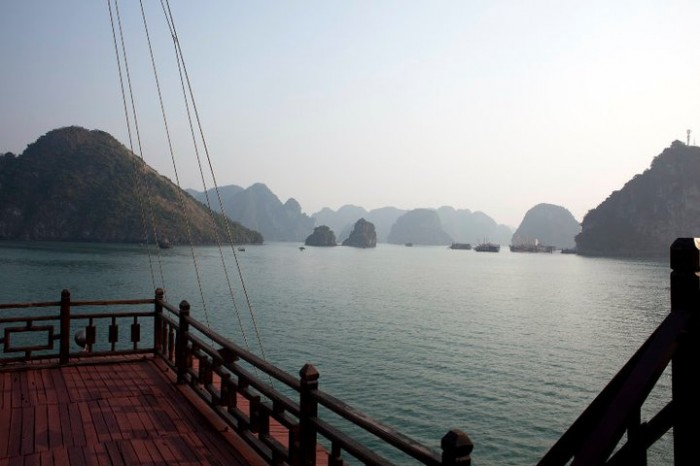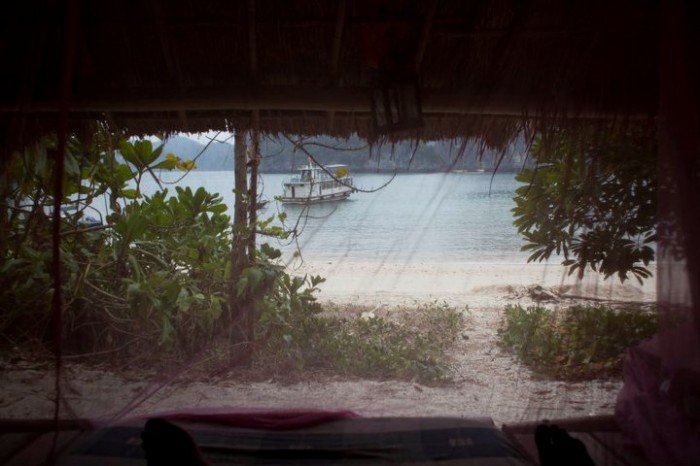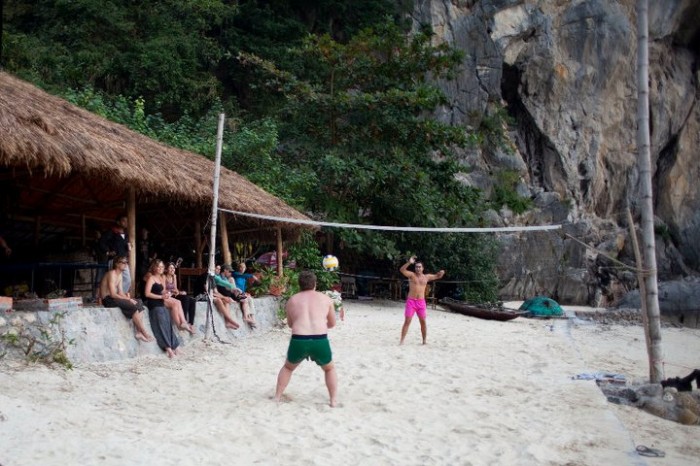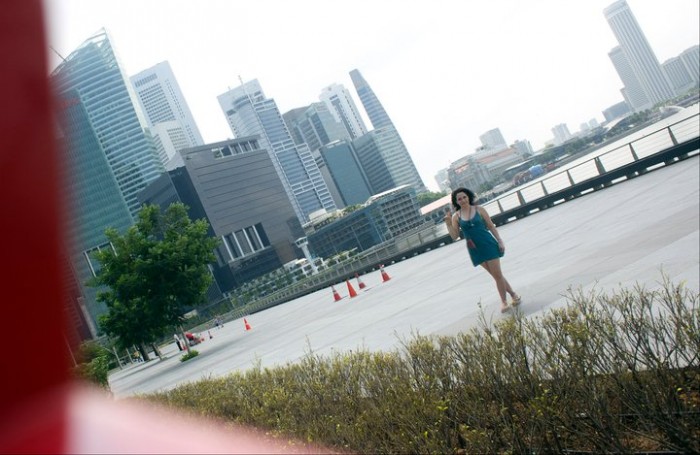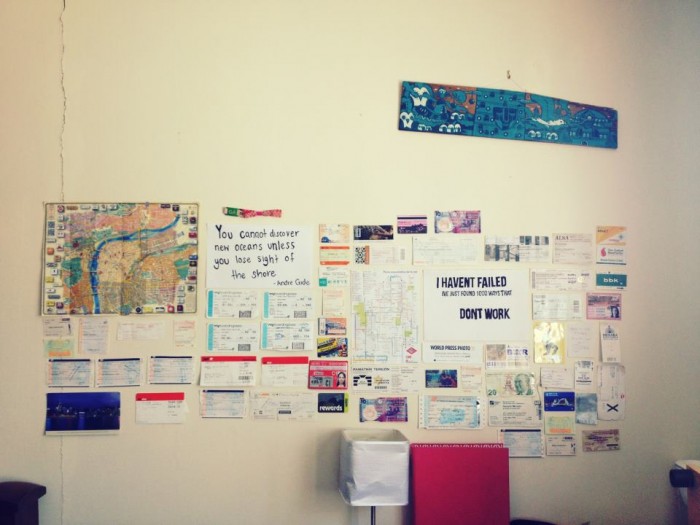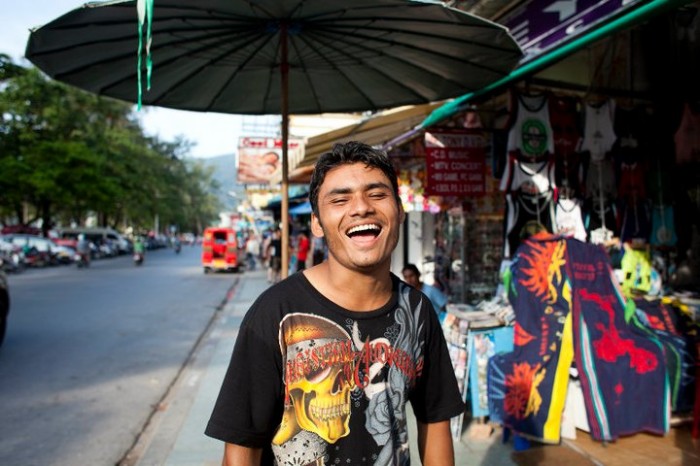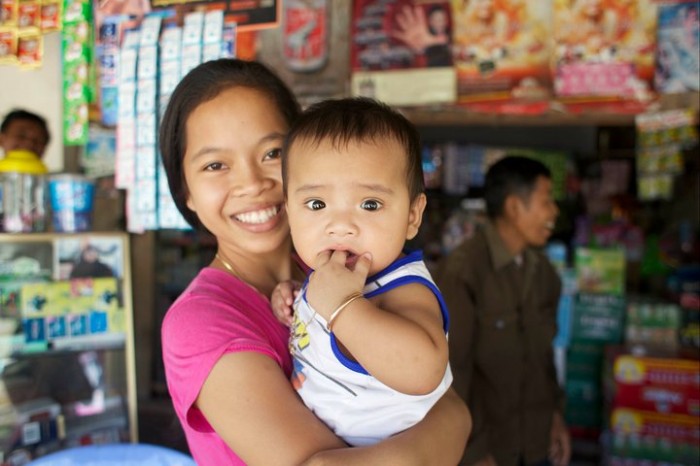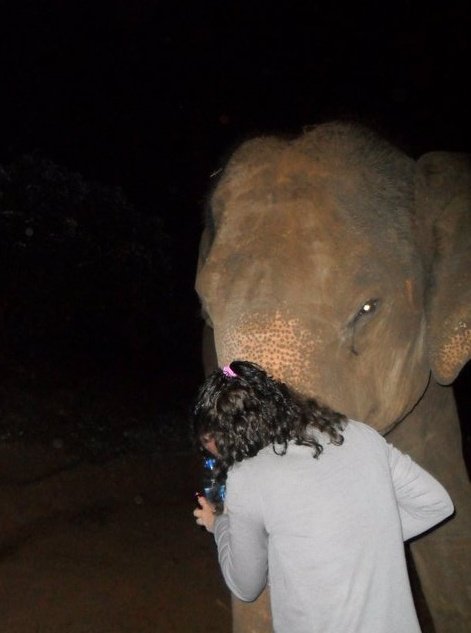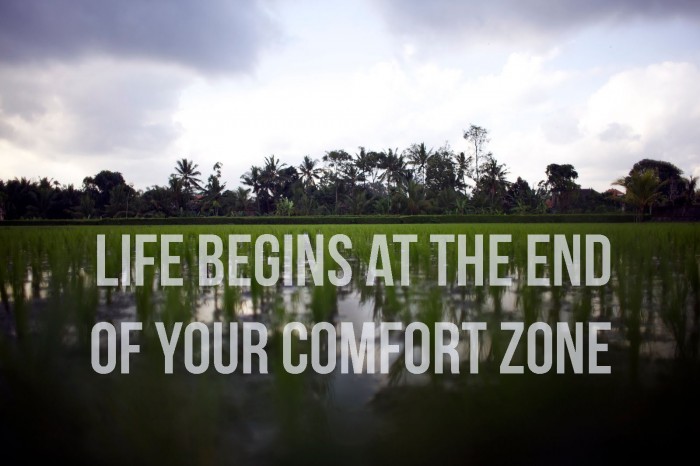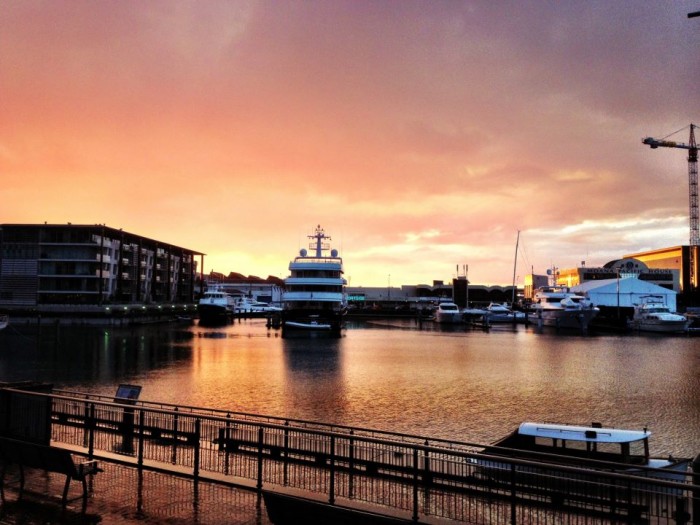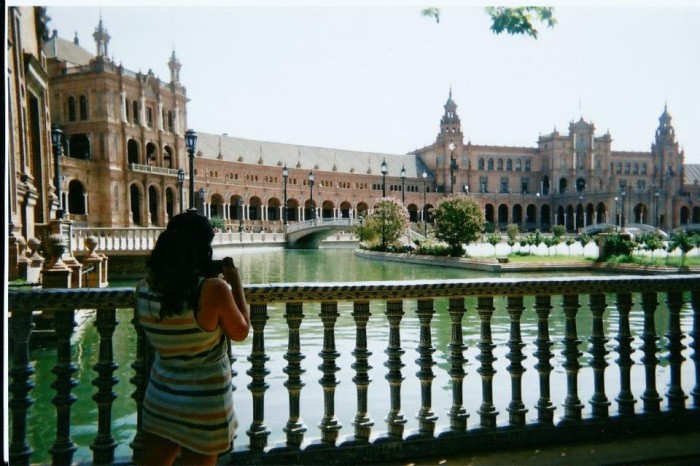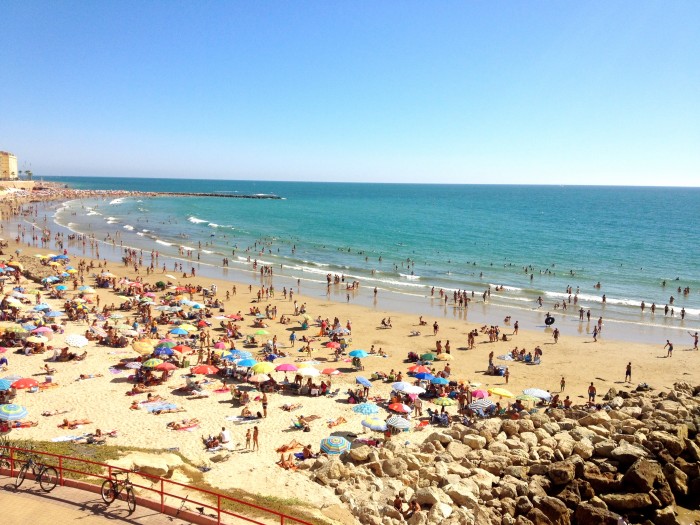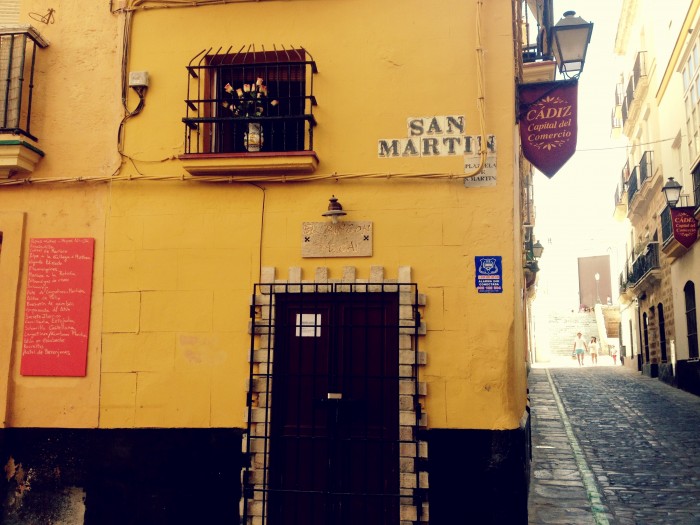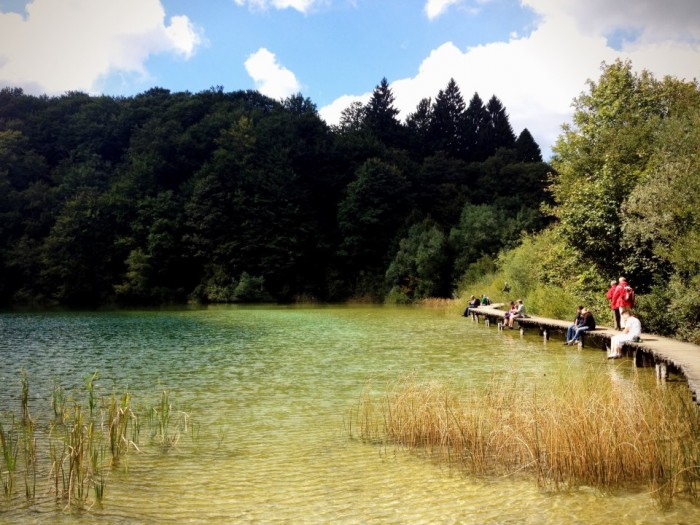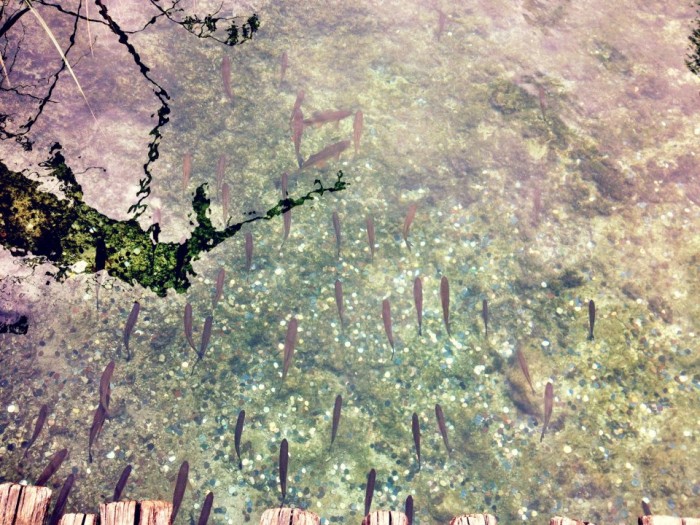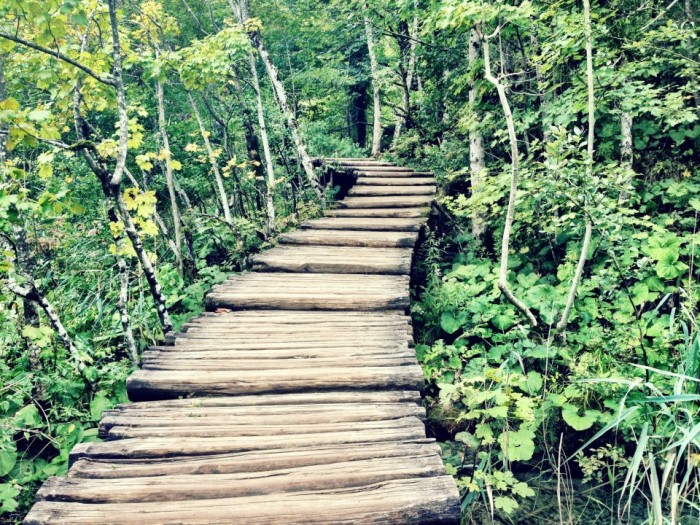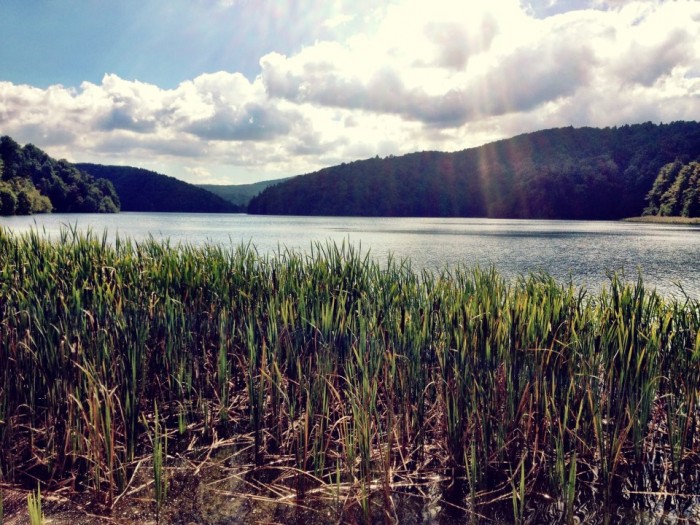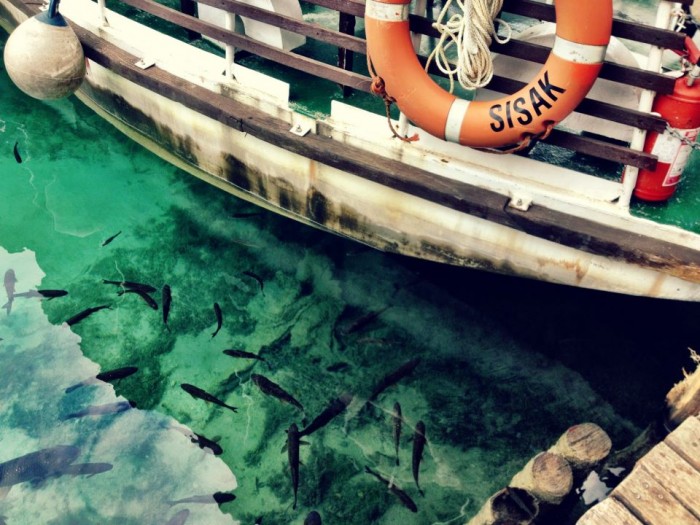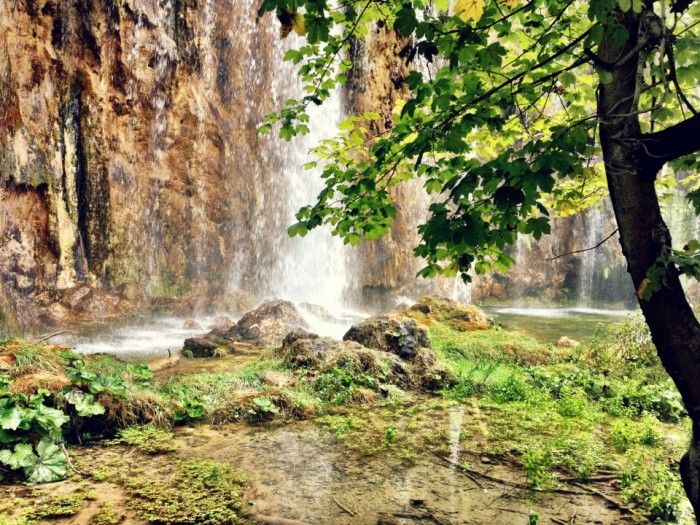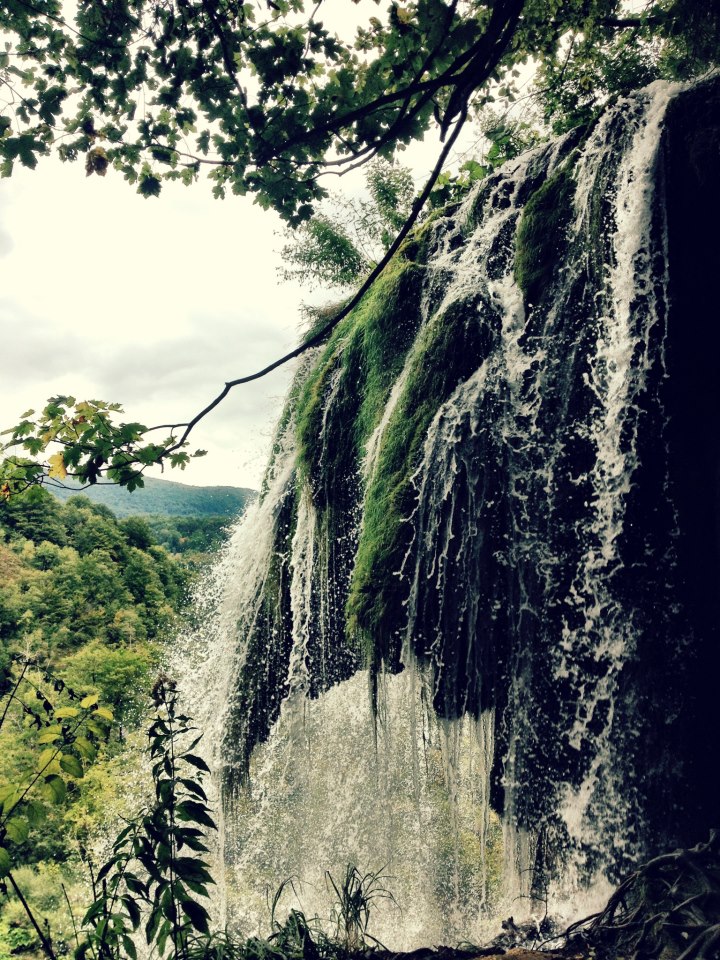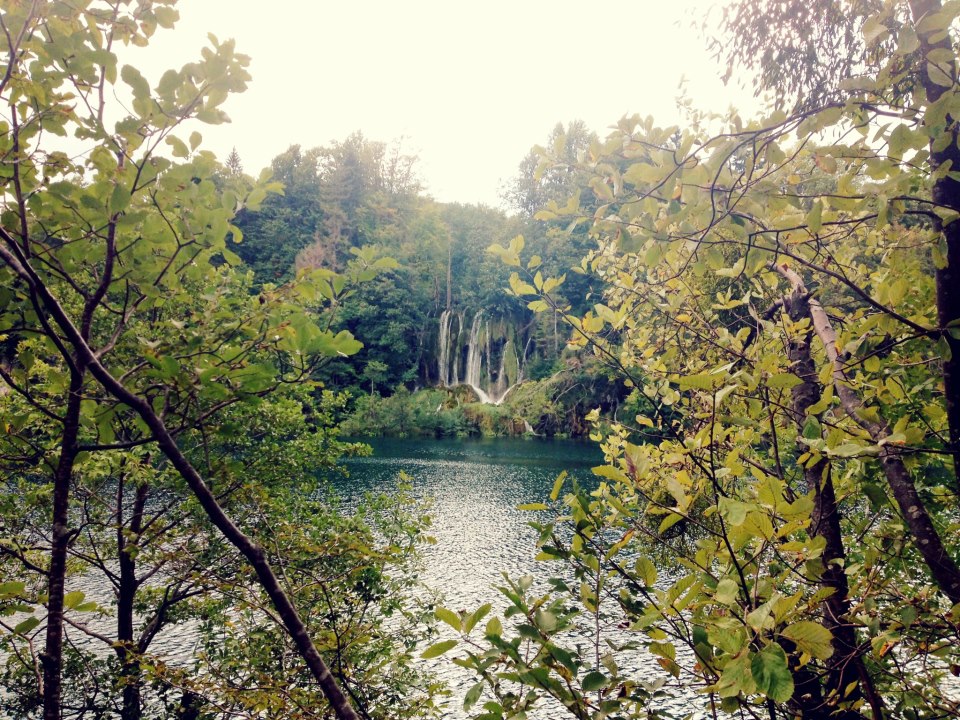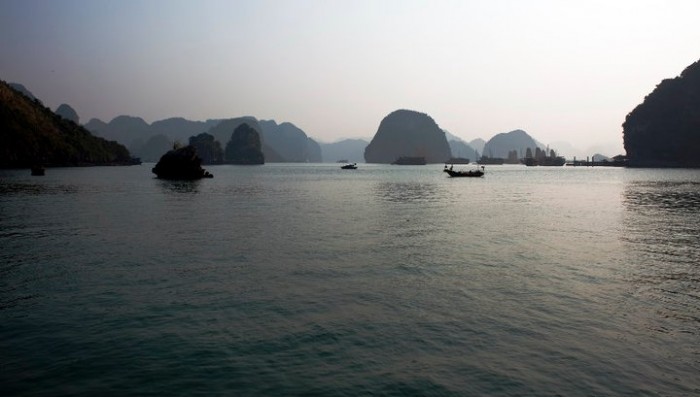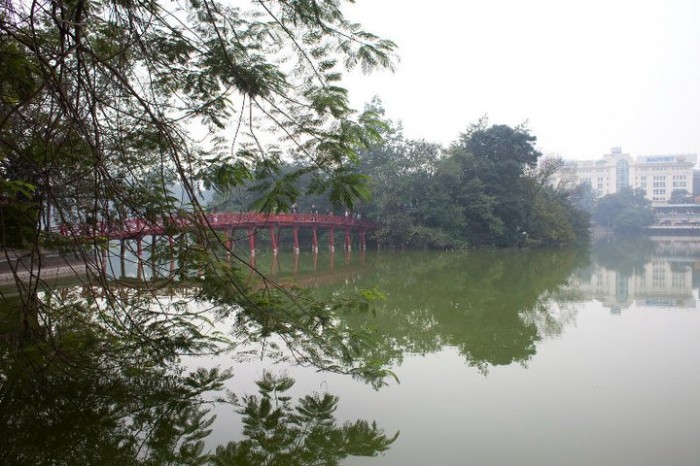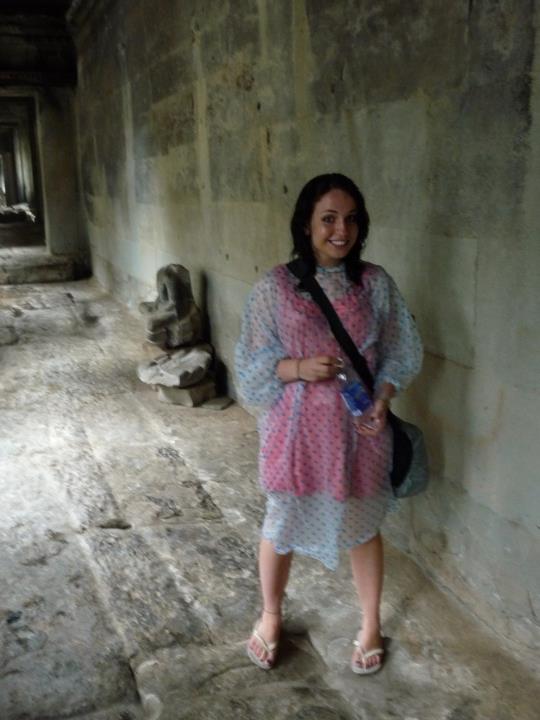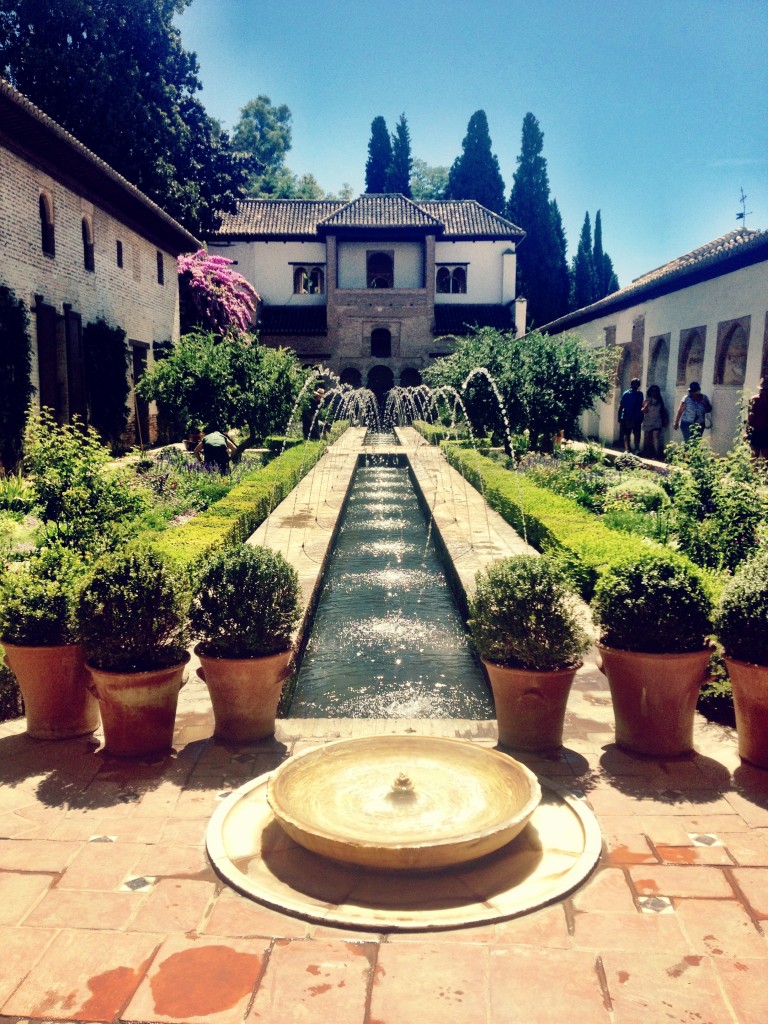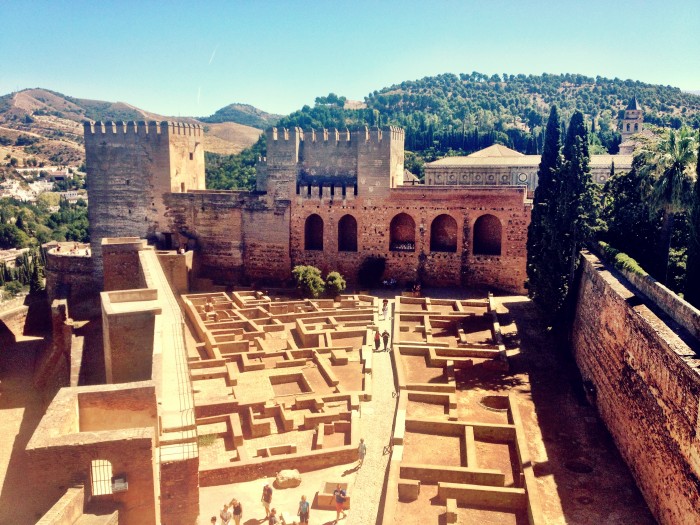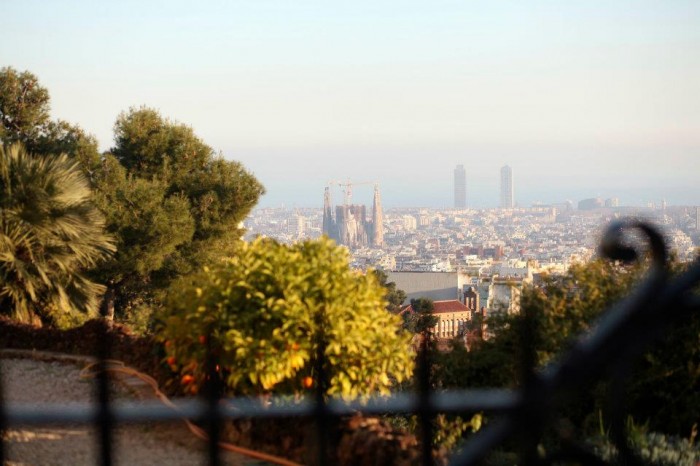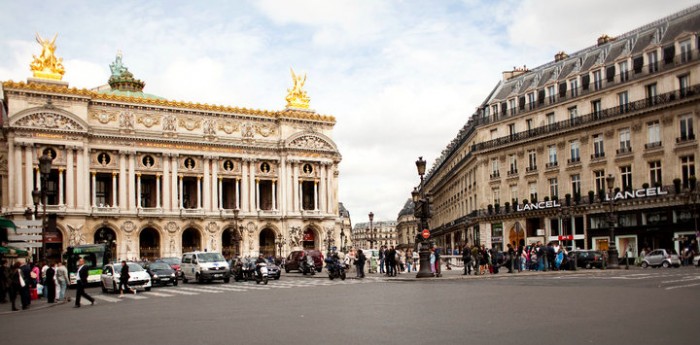The Best New Years
I’ve had a few great New Years celebrations, one was spent at a random festival with friends some 7 hours from home when I was 15, dancing listening to music without a care in the world. Last year I was in Budapest sampling all of their delicious red wine and beer and basically everything – I don’t like to discriminate.
But the New Years of 2010 to 2011 had to be one of my favourites – which is not that surprising because I was on a boat, and boats have a charming way of making everything a little better.
It wasn’t just any boat; it was a boat in Ha Long Bay – one of the most breathtaking places I’ve been.
That’s right, I had New Years Eve in HaLong Bay!
This is what I woke up to on New Year’s day.
Pretty good – right? While I’ve posted on my blog about how I’m going to Asia, partially because I miss Asia dearly and also because I want to test out working and traveling together in preparation for a bigger trip, but it’s also because I want another New Years in Asia.
Where? I have no idea. But looking through my photos of my New Years in Vietnam leads me to believe I’ve picked the right region.
We organized our Ha Long Bay tour through Hanoi Backpackers hostel, which was somewhat expensive but had a fantastic reputation as being a party boat; and what more would you want for New Years? It seemed a lot of people had the same idea and the boat actually ended up being two boats together, to accommodate the large crowd.
On New Years Eve we played a version of circle of death that involved a Troll card; a person would go under the table and tug on people’s feet in order to drink their drinks and was only allowed up when another Troll went under the table. There were also cards for various confessions, dares and my favourite was having to swap clothes when the person of the opposite sex closet to me – let’s just say my skinny jeans never looked the same again.
We moved to Castaway island where we chilled out, playing volley ball until the sun melted into the sky. As night became dusk we swam out to the ocean, where we were greeted by thousands of little glowing fish, which is a lot more incredible than it really sounds. The night was spent in great company having conversations that stretched to the corners of the universe and life and purpose. It was, all in all, an incredible New Years in a wonderful location.
I have no idea where I’ll be for this New Years, but that’s part of the charm.
Where was your best New Years ever? Where in Asia should I go for New Years?
Why I Travel
If I’m honest my last trip was weird; I left someone I really cared about in the middle of things – with a lot of questions about us and the future. Part of me wanted things to really work out, he was one of the most incredible guys I have ever met and there’s still a lot of sadness that things didn’t pan out better. But part of me knows it probably never could; he would like to travel at some stage, maybe.
Maybe travel.
Maybe a few years ago I would have been a girl who could have been okay with that. But I think I’ve come to realise that travel is my biggest love, aside from my sisters. I’m sure one day my priorities will shift a little and I’ll want a white picket fence and a cute dog and maybe some little babies, but for now I’m saving myself for the world.
As I prepare for my flights into Singapore and onto Bangkok, I’m getting really excited. I came home, I met my nephew and I resolved things with this guy. Now I can leave with a clear mind and a clear heart. I can be really open to the world and all it has to offer.
It’s funny, because tonight is the first night my room has been fully set up. I have a little travel shrine, a ridiculously comfortable bed and I even spent $30 on a delicious candle – which seems to be an outrageous price for a candle!
So I guess part of me is torn, there’s some progress in staying on one place, in settling, in having a routine. But then there’s the rest of the world. The whole world.
I’ve been sitting here this evening, sipping on some delicious tea trying to accurately articulate why I love to travel so much. Obviously being on holiday is really great and everyone loves that side of thing, but that’s not it.
The other day I was called flippant by a friend. I think he was confused because I’d declared I was coming home for summer and only a few weeks later I’m off again. I don’t think I’m flippant, I think I’d prefer to describe myself as open. Open to life. Open to what I feel is best in any given moment.
And maybe that’s what I love most about travel, it forces me to be present. To be really in that moment of time.
In every day life at home it’s easy to get lost in your routine, set your alarm, eat your lunch, do your work, see your friends and rinse and repeat the next week. There’s a time and a place for that, but for me it’s not now.
The first time I was in Asia, I was a month into my trip and I realised I hadn’t worn shoes (just flipflops) or set an alarm in weeks. I owned that moment almost as if it were a badge. Because somehow I’d removed myself from the stuff you have to do and was instead only doing the stuff I wanted to do. Every Single Day.
Waking up and asking myself what I really wanted to do on a daily basis was one of the best gifts I’ve given myself –Tweet This
I was constantly being exposed to new things, meeting new people and being thrust out of my own comfort zone on a regular basis. But above all, I knew I was growing as a person. I was etching away at the layers I’d built around myself and digging deeper into me.
The other thing I love about travel is when you step off the plane, completely alone you get an opportunity: you can be the truest version of yourself. You can be nasty, nice, loud, quiet, crazy, bland – whatever you want and everyone you meet will take you at face value. No reputation, no social status, nothing – you’re stripped away to your truest version of yourself.
Today I bought the only thing I really need before I head off – a travel towel. Less than two weeks until I leave and I’m ready. I’m ready to meet some new people, to see some new places and to learn more about this world.
But more than anything I’m ready to dig deeper into myself and what I want from life.
So tell me, why do you travel?
I miss Asia
It seems almost a daily ritual now, a deep sigh with the words “I miss Asia” following promptly.
Don’t get me wrong; I love being home in New Zealand and I treasured all of my adventures in Europe, but there’s just something about Asia that has me.
When I long for Asia there’s not one place in mind, rather it’s a combination of all of my favourite things of the places I’ve visited.
The laid back vibe of Ubud
Biking around Luang Prabang, Laos
Iced coffees in Takeo, Cambodia
Thai food
The sheer wonder of the Angkor complex
Waking up and seeing Ha Long Bay outside my window
Riding around Jakarta’s sidewalks on the back of a motorbike
Trekking in Chiang Mai
I’m struggling at the moment because my friends are planning trips to Asia. One friend left yesterday, another leaves in five days and another in a few days after that. Because I’m freelance writing, my location is less and less important.
Although I’m very settled in Christchurch and very content here, a part of me is wondering whether I should just nip away for New Years… and a little either side. Although I visited Hong Kong briefly in June, it’s been over a year since I was really in Asia.
I miss it, but it doesn’t make sense financially to pop away for a few weeks.
But sometimes the greatest adventures don’t make sense…
Like cuddling an elephant after midnight.
Ah, Asia – is it time?
Coming Home
Everyone will gush about how wonderful their adventures were overseas, the people they met, the places they saw and the food they tried.
Nobody is really open about the fact that it’s hard coming home. When you walk outside, you’re surrounded by the familiar, the normal. There’s little appeal in walking down the streets of your neighborhood in a bid to find something new, because it’s so familiar and you’ve seen it all before. Here in New Zealand everything seems so expensive; even compared to Europe. The weather doesn’t compare to the Spanish sun and everyone speaks English, which is a lot weirder than it sounds right now.
But I need this. I need this time to sit down and figure out the next move.
I need to sit through this uncomfortable discomfort of being home and being still. I need to refocus myself, reevaluate all of my goals. I need to do yoga, run, be on the beach, spend time with friends and family.
The truth is; I want this -I’m really happy in Christchurch. I’ve surprised myself by how glad I am to be here and how right this feels.
Whenever I went anywhere and met someone new, they’d hear all about New Zealand and how beautiful it is, and how much they should definitely pay a visit. I’m home now, for a long while, and I want to share with all of you the beauty of New Zealand.
In April I lost my camera, which probably doesn’t seem like a big deal, but last night I realised it was more like losing my sight. I can still see, but there’s nothing encouraging me to stop, focus and to see the beauty in everything and nothing.
So as soon as I can, I’m buying a new camera and I’m going to invest the time into falling in love with my beautiful country all over again.
Some News
It’s been quiet around here, I got on a plane from Istanbul to Auckland and sort of took a vow of silence, or something.
Sorry about that…
I’ve been busy in the background trying to step a little closer to my dream: location independence.
You see, for the past two years I’ve had an adventure. I’ve learned lots of things, visited amazing places like Angkor Wat and Ha Long Bay, I went to Coachella and volunteered in Cambodia. It’s been really great, but along the way I’ve just funded my travels in the ways I thought were easiest: being an au pair and teaching English overseas. Don’t get me wrong, both experiences were great and I really enjoyed them, but I felt like I could do more. I needed to do more.
Part out of curiosity and part out of desperation (read: my money was running out well before my travels were due to end) I signed up to Elance. I figured I liked writing and it would be cool to get paid for it. I applied for some jobs, exited the window and forgot about it. A few weeks later, I had an accepted proposal, then another and then the ball just seemed to start rolling.
This week is the first week that I’ve got a full time amount of work and the best thing? My three key projects are ongoing. It feels really good to be working and challenging myself, but above that this work gives me freedom. My employers don’t care (or at least don’t know) if I’m sitting on the couch, in my pajamas eating popcorn while I type away. Nobody knows if I start work at 3pm and then decide to go out for coffee. As long as I get the work done, it doesn’t really matter when. I’m on my own schedule.
The other thing that’s great is I’m earning western money. I’m earning more than I would working full time in NZ, even if I was using my degree. But I don’t have to live in NZ – I could leverage this money and save to my heart’s content, for as long as this good fortune lasts.
So, I’ve been busy thinking, where’s cheap, warm, sunny and somewhere I could live for a little while?
Any suggestions? I’m open.
Get Your Stuff Stolen
After almost two years on the road I know how hard it is lugging around all your stuff. I’m currently in Istanbul and I’ve been dragging around a giant red suitcase AND my backpack AND my handbag. Thankfully, earlier in the year I already managed to get my camera stolen, otherwise the load might be unbearable.
I’ve met lots of fellow travels along the way, each of them have their own unique and interesting travel stories. Some of them have stories you simply can’t believe, and then others have stories of pure genius: like how they manage to efficiently donate their items world without a trip to the Salvation Army or Goodwill.
As an ode to all the brilliant individuals I’ve met along the way I decided to cultivate:
Top Five Ways To Get Your Stuff Stolen
Disclaimer: if you actually like your own possessions, try to do the opposite that this guide suggests.
1) Go to any beach, anywhere (bonus points if it’s somewhere third world, because it will probably take even less time to achieve “possession cleansing”) and place all of your possessions on the sand, bag optional. Run into the sea, spend hours splashing away and bathing. When you return, you should find only an outline of where your belongings were, etched into the sand.
Optional: for an authentic “off the beaten track experience” ensure that all of your cash cards, emergency cash and passports were left on the sand for free taking.
2) When you board a train with allocated seats, put your belongings in your allotted carriage. When you feel it’s time to ditch your stuff, change carriages and fall asleep. You’ll wake up in an unintended country (say, Germany) while your possessions will make their way to the Czech Republic. After purchasing a new ticket to Prague, you’ll make it a day later than your belongings, giving the helpful Bag Weight Alleviators to work their magic and up lift your brand new laptop, cold weather clothing, spare cash, new shoes and basically anything else of worth that you recently purchased. Easy.
3) When in Marseille, France drive around (as passenger) in your rental car with your possessions on the ground. Leave the door unlocked, because we want to make it as easy as possible for possession cleansing to take place. When at an intersection, a man will swiftly open the door and uplift some of your favourite things. Shock will paralyze you, ensuring that you are unable to prevent the removal of your heavy, unnecessary items: such as your camera and phone.
4) If you find yourself in Los Angeles, pressed for time, ensure that you find a valet parking service. Now, it may sound bizarre to pay for a car minding service that also uplifts some of your more valuable items, but it is a great business model, at least on their side. Place expensive dSLR in a plain black bag, in the passenger’s foot area; this way it isn’t too hidden to provide a challenge for them, but it isn’t insulting to their uplifting skills. Upon return of the vehicle, be sure to pay them for their usual services and to tip generously, for they have really done a fantastic, efficient job.
5) If you’re Barcelona alone, wandering around with your smartphone as your GPS and a man approaches you asking if you need help, definitely give him your phone. That way he can plant a kiss on your cheek before running into the darkness with your phone. This brings a whole new, more expensive meaning to the phrase “tap and gap”.
*All based on true stories, including my own misfortune
Anyone else had anything stolen while they were off exploring? I’d love to hear your stories.
Plitvice Lakes – Croatia
When you travel, there’s no right or wrong destination; just options.
Sometimes, especially when you’ve got time constraints, it’s possible to get overwhelmed by options.
I was trying to choose between Lake Bled, Slovenia and Plitvice Lakes, in Croatia.
Fate would have it that it was easier to get to Zagreb and onto Plitvice than to lake Bled.
So it was decided.
Although I was devastated not to make it to Dubrovnik and beyond, this was a pretty good consolation.
I have some serious unfinished business in Croatia. It was hard to leave a country longing to see more.
Is there anywhere you’ve been that’s top of your “to return” list?
What I Want
I decided it was time to sit down and articulate what I want from life.
First of all, I want to wake up in locations like this more often.
Secondly, I want to follow my dreams.
When I went back to New Zealand I got wound up in emotions, met someone who took me by surprise and it was all wonderful. But after leaving, while I realised that particular person was special and someone I could see myself being with, I realised that I wouldn’t get to do it on my terms.
Compromise is a fact of life, but not really something I’m particularly interested in at this stage. Maybe it’s being selfish, maybe it’s being silly, but I just have so many things I want to do in life and I can’t imagine someone else fitting perfectly into the picture.
I am FOREVER ALONE.
At least for now.
In the past few weeks I started freelance writing and am now earning enough to travel contiously. I don’t know how long it will last, but I’m really enjoying it for now and have a few ongoing jobs that I think would cover me for a long time…
So that found me in an interesting position – I have one-way flight back to New Zealand at a time I probably wouldn’t have chosen if I was the only factor. I contemplated canceling it, postponing it, staying on in Istanbul and volunteering and pushing this freelance writing for all that its worth, but then I remembered an important quote that I like to keep fresh on my mind, always:
There is time for everything
At least everything you want to make time for. So, I can go back to Istanbul later and do that if I want to.
So what am I thinking? I am going to use that flight to New Zealand, i’m going to see my friends and family, sort out my affairs, do some traditional work (too) in order to boost up my travel fund good and proper and then I’m going to bolt.
The next trip I take, I want it to be with the intention of relocating somewhere else. I want to LIVE overseas for a decent period of time, set up my own social group, have my own flat/apartment and get under the skin of the city I choose.
I have a few options in mind and I’d love any feedback on them. My plan is to be able to save, so I’m looking for somewhere on the cheaper side of things, bonus points if the native language is Spanish, though I’m considering hiring myself a Skype teacher so I can continue my Spanish anywhere.
Chiang Mai, Thailand – cheap, warm, good expat community, great food
Ubud, Bali, Indonesia – cheap, warm, awesome vibe, good expat community, amazing yoga barn
Buenos Aires, Argentina – never been, but I know I wold love this city, it’s a bit more expensive than the other places, but Spanish!
Costa Rica – formally an expat haven, they speak spanish, ideal climate, a good location for exploring more of central America
Somewhere, India – cheap, somewhere I would love to volunteer, great food
Mexico – cheap, great food, good climate, Spanish
La Paz, Bolivia – I’ve always been obsessed with visiting Bolivia, I don’t know why. I’d love to volunteer there, they speak Spanish, it seems to be a lot cheaper than Argentina and Chile
Berlin, Germany – I love Berlin, can apply for a freelance visa if my work is still solid by then, and it’s one of the coolest cities I’ve ever been to, but there’s no way I’m going anywhere near it until winter’s over.
So that’s my list of main contesters, if I’m missing anything, let me know! I’d love some suggestions. I don’t think I’ll be moving overseas for another 3-6 months, so I’ve got some time to build up some funds and make some plans.
In the mean time I’m off to Vienna next week, Croatia, Bulgaria and Turkey – it’s gonna be an intense few weeks, but the perfect way to say goodbye to two years of solid adventure.
(Here’s to the next two…)
Postcards from the Alhambra
When my friend and I were planning how to spend our time in Granada, we both knew that the Alhambra was a must see. I’d taken the time to do a little research on the Alhambra, and as far as I knew: you had to prebook tickets, needed a whole day to enjoy the grounds and it looked kind-of-ugly. Well, each of those turned out to be wrong in their own right. We, luckily, managed to get tickets that morning for the morning session. The map that they give you seems to be somewhat exaggerated and we found ourselves accidentally rushing through the entire complex in just over 2.5 hours. And most importantly: it was not ugly, in fact I commented numerous times on how not ugly it was (read: stunning, gorgeous, incredible, lovely and, of course, amazzzzzzing).
Something you definitely have to see at least once in your life.
The detail is incredible and actually reminds me a little of Angkor Wat and Borobudur.
Teach English in Europe
One of the questions I always get about my long-term travel is “How do you afford to travel so long?” – well, it’s a twofold answer. Firstly, when travel is your priority you’ll find yourself putting every spare penny towards it. You’ll start sacrificing materialistic things in order to save for your world trip. Secondly, you can always find a job overseas that allows you to live in a foreign country and to use it as a base to explore.
Europe is one of the best places to base yourself because there are such a great variety of countries nearby and it’s easy to plan exciting weekend trips away. If you’re looking to move overseas for a while, the first thing you’ll have to ask yourself is what kind of work you’d like to do. One of the most obvious job choices for native English speakers is teaching English overseas – it’s in high demand in almost every country.
Finding an English teaching job overseas can be intimidating, especially if it’s a field you haven’t worked in. The first thing you’ll need to figure out is whether you’re eligible to teach English in Europe. Usually as a minimum employers will want someone who is a native English speaker and someone who has at least an undergraduate degree (in English or Teaching is a definite bonus).
Do I need a TEFL to teach abroad?
If you are serious about teaching English overseas, you will find that obtaining a TEFL, Teaching English as a Foreign Language, certificate will increase your chances of landing a good job. TEFL, TESOL or CELTA are the most popular certificates you can obtain, but before you invest money and time into them, it is a good idea first to decide which country you would like to work in. Some positions would require this certification, but employers usually want experience teaching or certification.
Where can I Teach English in Europe?
At the moment there is a strong demand for English teachers in Spain, France, The United Kingdom and Georgia. I taught English in the Czech Republic for six months and really enjoyed the central location to explore the surrounding countries. After returning home for a brief stunt, I spent six weeks living in Madrid, Spain. For someone who is from such an isolated country, living in Europe is an incredible opportunity to explore surrounding countries and your new adopted country. Traveling to Europe doesn’t have to be expensive; you can find a lot of cheap Air Canada flights to get to Europe.
If you chose to teach English in France you would be bordering a number of interesting countries: Switzerland, Italy, Spain, Luxembourg, Belgium and Italy making it possible to spend weekends or holidays abroad without spending a fortune on flights. While it seems a bit unusual to move to the United Kingdom to teach English, many people from other countries move there in order to learn English so there is an abundance of jobs there. The UK would be the obvious choice for someone who wants to live overseas, but isn’t ready to commit to being immersed in a country where there might be a language barrier. Georgia is high on my travel list; I haven’t visited yet, but I have heard that it is an exceptionally beautiful country filled with the most hospitable and generous people. Maybe in future I will consider living there as it would be an incredible cultural experience.
Interested but not sure where to start?
Steps for securing an ESL job to teach English in Europe:
1) Narrow down the country/countries you are interested in working in
2) Browse TeacherHit for teaching jobs in Europe to decide what qualifications are required for your chosen country and to find current job listings for English teachers overseas
3) Do an online or in person TEFL, TESOL or CELTA course to improve your teaching skills
4) Start your individual job applications for the positions in the countries that interest you most
Beyond the bonus of being able to travel around a new country and continent, teaching English in Europe where it is not the native language gives you the opportunity to learn or improve a new language yourself. If you’re interested in learning Spanish, then Spain would be an obvious choice for a place to live and work for a year. On the same note, there would be no better place in the world to learn French, than in France, perhaps Paris or Nice – the options are endless! When I was living in Madrid I took an introductory Spanish course and found it really helpful. In future I’d love to move back to Spain to teach English and continue my Spanish learning.
Have you ever taught English overseas? Have you taught English in Europe? What was your experience like?
If you have any questions about teaching English in Europe feel free to post them below, I’m happy to help.


